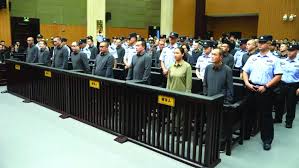It has been one year since His Eminence Eberechukwu Oji ascended the throne in Arochukwu Kingdom, a phenomenon with an outburst of hope and heritage.
From July 24 to 27, 2025, Arochukwu Kingdom celebrated the first coronation anniversary of His Eminence, Eze Aro Dr. Eberechukwu Oji. Under the unifying theme “Aro Renaissance: Consolidating Gains and Charting New Frontiers for Aro Kingdom Unity, Peace and Development,” the four-day event combined spiritual renewal, healthcare outreach, intellectual discourse, traditional ceremonies, and high-level networking. Attendees included royal fathers, government officials, diaspora representatives, and foreign guests.
Thursday, July 24, started with an open-air crusade and free medical outreach at Aggrey Primary School, Ibom Village. Over 300 people received consultations, eye tests, and prescriptions—a first for the kingdom’s anniversary events.
On Friday, July 25, the 6th All Aro National Conference (AANC) took place at Aro Civic Center, Oror. Chaired by Lord Mayor of Arondizuogu, Dr. Innocent Ezumah, the conference tackled diaspora engagement, peacebuilding, and sustainable development. That evening, a gala dinner hosted by Nzuko Aro at Alpha Plus Hotel, Amuvi featured the inauguration of committees on water, roads, sports, tourism, and environmental beautification.
Saturday, July 26, was the main coronation anniversary ceremony. Abia State Governor Dr. Alex Otti, represented by Mayor Arochukwu LGA, served as the Special Guest of Honor, joined by traditional rulers, industry leaders, academics, and global Aro representatives. The event underscored the monarch’s first-year achievements and heralded the promise of growth.
The festivities concluded on Sunday, July 27, with a thanksgiving service at RCCG Amannagwu Village, thanking God for unity, progress, and divine favor in the year past while asking for guidance in the future.
Planning Committee Chairman Mazi Obi Chijioke praised Eze Aro’s first dozen months for delivering visible transformation in Arochukwu. The “Light Up Aro” street lighting initiative has extended business hours and enhanced safety. Community empowerment schemes—especially in youth, agriculture, and tourism—have catalyzed economic activity. Cultural revival, unity across venues, and diaspora involvement reflect a reenergized sense of identity.
The medical outreach, led by Aro health professionals, validated the king’s commitment to bottom-up leadership—integrating service with spirituality and healing.
Voices and Perspectives: AANC Key Themes
At AANC, Dr. Azubike Okoro advocated for hybrid conflict resolution systems combining traditional institutions—like the Okpankpo Aro, Ekpe society, ancestral guidance, and Nzuko Aro—with modern arbitration. He emphasized culture and tradition as the bedrock of unity and sustainable peace.
Mazi Kanu Ohuche urged Arochukwu to model Governor Otti’s transformational leadership and deepen diaspora participation. He also called for women’s inclusion in political and economic spheres and the creation of an award committee to honor outstanding Aro leaders.
Commentators underscored the need for structures to harness youth potential, mitigate cultism, teenage pregnancy, and encourage self-sustaining growth. Speakers called for conflict resolution models rooted in “truth, reconciliation, and inclusivity.””
A Kingdom of Ancient Prestige
Origins and Formation
Historically, Arochukwu, an already existing people, was shaped into a confederacy after the Aro‑Ibibio Wars. The alliance of diverse people birthed the Arochukwu Kingdom, unifying nineteen Ogos (villages or city‑states) under a central monarchy, with Akuma Nnaubi as the first Eze Aro, succeeded by Oke Nnachi, whose lineage continues today.
The Aro Confederacy
From the late 17th century through the 19th century, the Aro Confederacy became a regional powerhouse, blending economic, spiritual, and political influence. The kingdom’s strength derived from a dense network of Aro settlements across Eastern Nigeria, Cameroon, and Equatorial Guinea—and from its control of the Ibini Ukpabi oracle, dubbed the “Long Juju” by Europeans .
The oracle served not only as a spiritual guide but as a judicial supreme institution—travelers and litigants sought its judgment, which often resulted in death or enslavement of the culprit. As a result, Aro influence extended deeply into neighboring communities through religious and judicial authority.
Economic and Political Dominance
The Confederacy’s power lay in trade—especially the slave and palm oil trade. Agents facilitated commerce and judicial arbitrations across hundreds of hinterland settlements. Aro merchants and priests acted as intermediaries between local communities and coastal trading centers like Calabar and Bonny. Their reach was underpinned by alliances with warrior groups from Ohafia, Abam, Afikpo, and Ekoi, creating a formidable trade-political network.
Decline and Colonial Conquest
The end of Aro supremacy came with the Anglo‑Aro War (1901–1902), triggered by British ambition to abolish the slave trade and undermine the oracle’s power. British forces captured Arochukwu, destroyed a part of the Ibini Ukpabi shrine, and systematically dismantled the Aro power structure. While the oracle was publicly believed to have been destroyed, oral history suggests that Aro custodians secretly preserved its sacred enclave inside the forest—maintaining an unspoken shrine legacy.
Looking Ahead: Tradition Meets Transformation
The First Coronation Anniversary of Eze Aro Dr. Eberechukwu Oji, coupled with the 6th Aro National Conference, signals a renaissance deeply rooted in history yet focused on innovation and unity. The event established:
Grassroots healthcare outreach reflecting spiritual and social commitment,
Diaspora conference platforms articulating peace, culture, and development goals,
Strategic committee launches in tourism, infrastructure, environment, and youth engagement.
These activities signal a shift toward leveraging Arochukwu’s heritage for modern economic growth—particularly through heritage tourism anchored on sites like the Ibini Ukpabi shrine, Okoroji House Museum, and the 79 steps pathway leading to renewal of cultural and traditional heritage.
By integrating traditional authority, diaspora know‑how, youth inclusion, and community welfare, the kingdom is charting a new path—one where historical prestige aligns with contemporary relevance and shared prosperity
Weaving together culture, leadership, spirituality, and civic-minded development, Arochukwu’s First Coronation Anniversary and National Conference mark a transformative milestone. Under Eze Aro Dr. Eberechukwu Oji’s leadership, the Kingdom stands at the threshold of a true renaissance—honoring a storied past while forging a vibrant future rooted in unity, dignity, heritage, and economic sustainability.























